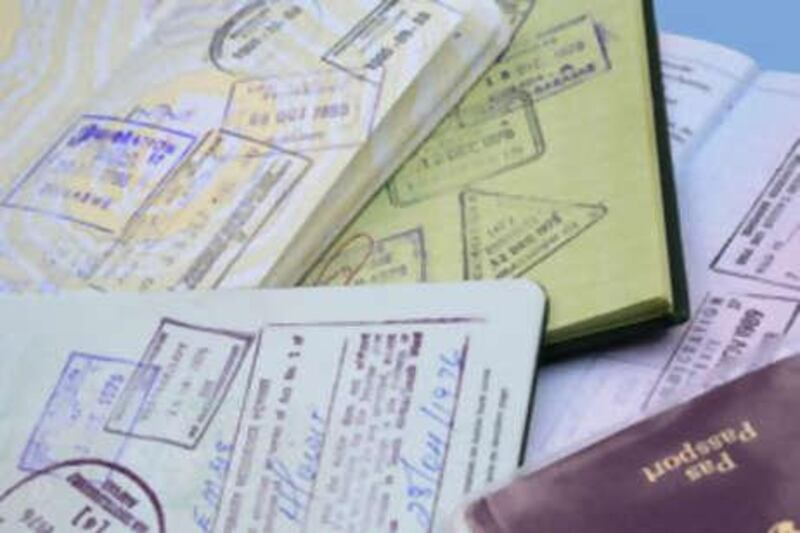ABU DHABI // Expatriate workers are worried the new visa laws will prevent them from bringing relatives and friends to the UAE for work and reduce the pool of productive staff. Their concerns mirror those raised by some senior human resources officials this week, who claim the hospitality and tourism industries, in particular, will be hard hit if the flow of new staff into the country abates.
Under the new rules, it will be harder for the nationals of non-exempt countries to enter the UAE on a visit visa to search for work. Visit visas will only be granted to those sponsored by a direct relative. Countries that are traditional labour sources for the UAE, such as the Philippines, India and Pakistan, are among those affected. Expatriates spoken to this week say there are three factors that would make it harder for friends and family to travel to the UAE to look for work: higher fees for many visa types; the requirement that expatriates will have to fly to their home countries if they want or need to change the status of the visa; and restrictions that expatriates could sponsor only spouses and close relatives.
"I was thinking of bringing some of my friends to come here because the economy is not good [back home]," said Renato Ramones, 45, a Filipino supervisor at a property company. "With the new system, it's going to be difficult." Mr Ramones has been in the country for 14 years and was waiting in line yesterday at the Department of Residency and Naturalisation to change the status of his wife's visit visa to a residency visa.
He started the process on Monday. If he had submitted his application yesterday, his wife would have been required to travel back to the Philippines. "It's going to be very difficult for people because it's not only the Filipinos who bring people to the country; everybody does that. There are a lot of opportunities here," he said. Mr Ramones said, however, that the system would eventually limit the number of illegal immigrants. However, he asked: "What about those seeking legal status? They are going to be affected."
He said people would think twice before coming here because they now only had two choices - either to work in the country illegally or to fly back home to wait for a work permit. A lot of people could not afford that, he said. "The talk of the town now is the new system," he said, adding that the number of Filipinos coming to the country on visit visas to search for work would significantly drop.
Now, companies must obtain work visas for new employees before they arrive in the country. Tabrez Ahmed, 34, a car technician, said the new system would not affect the people who were here to visit family members or for tourism purposes: "Those who look for work will be affected." The new rules would discourage people with low incomes, he said, because of the higher fees and the need to fly back to their countries if they arrived on a visit visa.
@Email:mhabboush@thenational.ae






